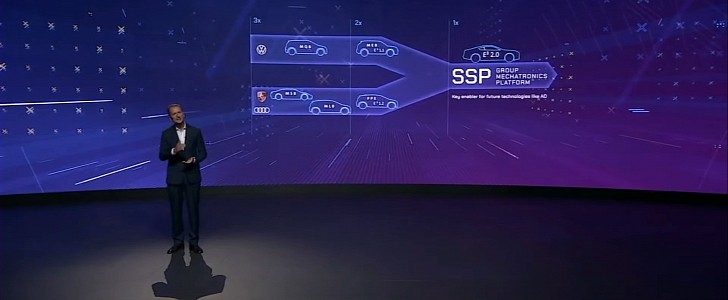Carmakers have invested heavily in battery cell production. Still, their ability to source enough supplies of lithium, nickel, and cobalt are hitting a brick wall in the face of supply chain issues and competition for those materials.
Major automakers like Volkswagen, Daimler, and Stellantis are battling to secure battery cell supplies across Europe, but a larger stumbling block may well be finding enough battery raw materials to feed their need as they go electric en masse. Experts say the failure to source adequate lithium, nickel, manganese, or cobalt supplies may slow a shift to electric vehicles (EV), make those vehicles considerably more expensive, and even cut into the automakers' profit margins and bottom lines.
Daniel Harrison, an Auto Analyst at Ultima Media, says it’s a serious question for the carmakers if supply can keep up with demand across the supply chain.
Europe essentially gave up on the race to make and deliver batteries to dominant Asian manufacturers like China’s CATL, South Korea's LG Chem, and Japan's Panasonic, but Ilka von Dalwigk of EIT InnoEnergy now says his company has created a network funded by the European Union - the European Battery Alliance - to rejoin the fray.
"Nobody saw that as a problem. The thinking was that we can import battery cells," says von Dalwigk.
The EU has also funded programs to the tune of billions and helped fund the construction of major battery plants. Volkswagen plans six battery plants in Europe, and Daimler says they’ll build four with a series of partners.
EIT InnoEnergy now says some 50 more planned projects are on tap in the EU. If all those plans become reality, von Dalwigk notes that local production will meet demand some time around 2030.
Projections are that the six plants in the works by Volkswagen alone will allow the German company to build approximately two-thirds of the batteries they will need going forward.
But production plans have yet to address a lack of investments in raw material extraction needed to supply the plants. Within the last year, the price for lithium carbonate has gone up more than double, and the cobalt's pricet (the largest deposits are located in the Democratic Republic of the Congo) is also expected to ramp up.
At this point, lithium mostly comes from Australia and Chile, cobalt from the Congo, and graphite from China.
Startup Vulcan Energy is working on producing lithium via CO2-neutral processes from water in Germany's Upper Rhine plain, and producers are also eyeing recycling as an option as well. But quality issues in those recycled materials mean only 10% to 20% of demand serviced with such materials.
Daniel Harrison, an Auto Analyst at Ultima Media, says it’s a serious question for the carmakers if supply can keep up with demand across the supply chain.
Europe essentially gave up on the race to make and deliver batteries to dominant Asian manufacturers like China’s CATL, South Korea's LG Chem, and Japan's Panasonic, but Ilka von Dalwigk of EIT InnoEnergy now says his company has created a network funded by the European Union - the European Battery Alliance - to rejoin the fray.
"Nobody saw that as a problem. The thinking was that we can import battery cells," says von Dalwigk.
The EU has also funded programs to the tune of billions and helped fund the construction of major battery plants. Volkswagen plans six battery plants in Europe, and Daimler says they’ll build four with a series of partners.
EIT InnoEnergy now says some 50 more planned projects are on tap in the EU. If all those plans become reality, von Dalwigk notes that local production will meet demand some time around 2030.
Projections are that the six plants in the works by Volkswagen alone will allow the German company to build approximately two-thirds of the batteries they will need going forward.
But production plans have yet to address a lack of investments in raw material extraction needed to supply the plants. Within the last year, the price for lithium carbonate has gone up more than double, and the cobalt's pricet (the largest deposits are located in the Democratic Republic of the Congo) is also expected to ramp up.
At this point, lithium mostly comes from Australia and Chile, cobalt from the Congo, and graphite from China.
Startup Vulcan Energy is working on producing lithium via CO2-neutral processes from water in Germany's Upper Rhine plain, and producers are also eyeing recycling as an option as well. But quality issues in those recycled materials mean only 10% to 20% of demand serviced with such materials.






